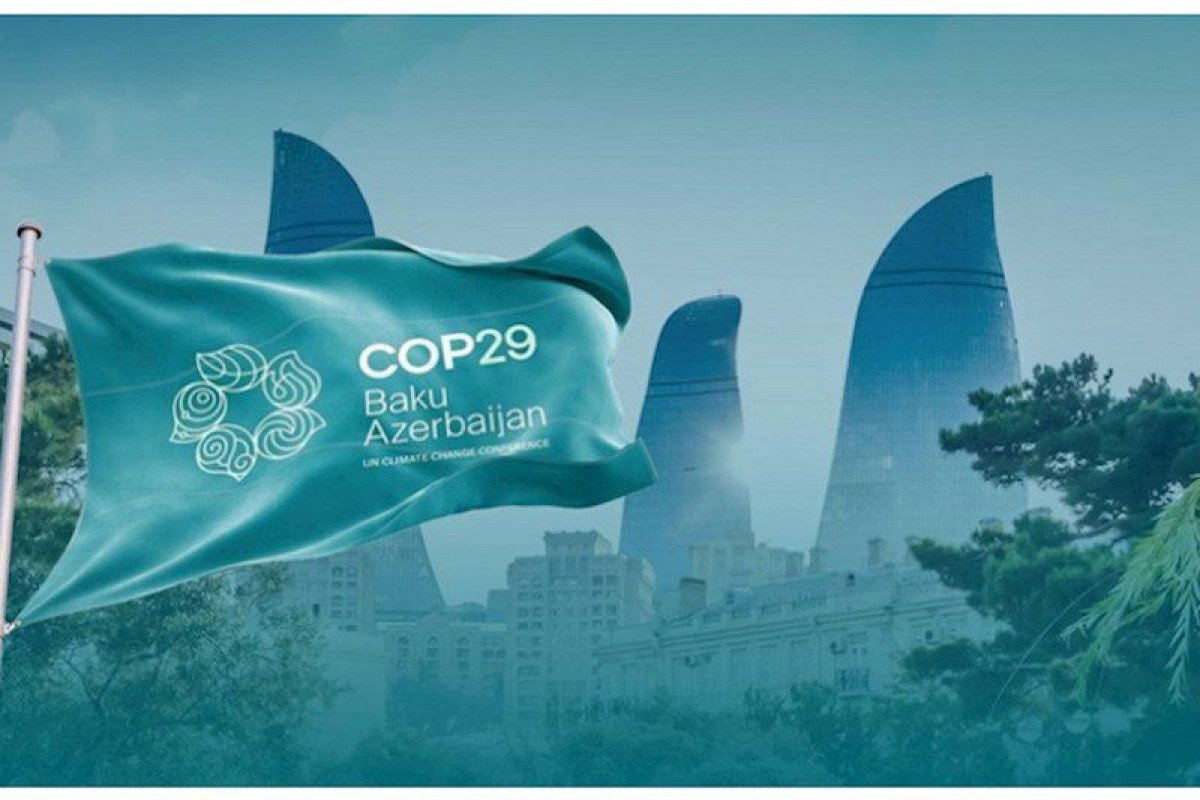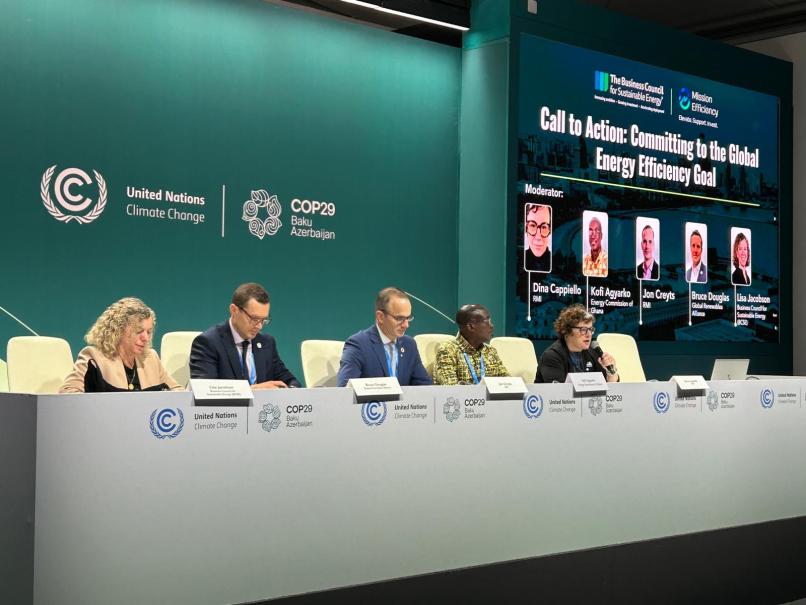To stay aligned with collective climate goals, investment in energy efficiency must triple by 2030 and primary energy intensity needs to improve from 1% to 4%. Global investment in new renewable energy generation is nearly double that of investment in energy efficiency, despite efficiency’s crucial role in reducing energy demand. In fact, efficiency improvements in 2022 reduced energy use equal to 3x the amount of solar and wind capacity brought online.

While efforts to incorporate renewable energy goals into individual nations’ nationally-determined contributions (NDCs) should be applauded, energy efficiency seems to have been left out entirely. This is an immeasurable missed opportunity.
Improving energy efficiency in industry, buildings, transport, and power sectors could generate 40% of the emissions reductions required by the Paris Agreement. Seeking to keep efficiency goals on track, the Mission Efficiency coalition has come together in unified support to champion efficiency as a cornerstone of the energy transition. This coalition calls on governments and businesses to:

Meeting the efficiency target will make the energy transition cheaper, faster, and fairer, while simultaneously promoting growth, profitability, health and safety, enhanced energy security, and access to affordable energy.
"We cannot meet our climate goals by focusing on growing renewable energy only,” said Jon Creyts, CEO of RMI. “We critically need to address demand, particularly as electricity usage is projected to increase with new technologies.”
Mission Efficiency calls for other organizations and countries to join us in this call as we stand ready to provide support and expertise to advance these efforts in Baku and beyond, fostering collaboration to achieve concrete progress.
“Now is the time to act,” said Lisa Jacobson, President of the Business Council for Sustainable Energy (BCSE). “If we do not raise energy efficiency as a priority now, we are at risk of missing our collective climate goals.
“With increasing electricity demand, the world needs the powerful combination of energy efficiency and renewable energy to avoid adding more fossil fuel generation. Doubling energy efficiency by 2030 can help ensure a lower cost energy transition and not an expensive, polluting energy addition," said Bruce Douglas, CEO of the Global Renewables Alliance.
"Energy efficiency could save $2 trillion annually by 2030, helping our grids meet demand when it matters most. This is especially true for peak demand, in a year where record heat waves led to record grid demand in most of the world. Efficiency can cut those peak costs and bolster resilience as we move to clean electricity," Douglas added.
Mission Efficiency partners will be discussing this Call to Action and COP 29’s impact on energy efficiency during a press conference on November 14 from 16:30-17:00 AZT in Press Conference Room 2, Area C in the Blue Zone. Watch the recording here: unfccc.int/event/bcse.
About Mission Efficiency
Mission Efficiency was born as the Three Percent Club in 2019 as a coalition of governments, organizations, and initiatives coming together to accelerate the transition towards energy-efficient economies worldwide. The coalition aims to improve global understanding of energy efficiency and share expertise and resources needed to deliver progress and solutions on energy efficiency and climate action.
The Mission Efficiency Global Ambition Taskforce is led by RMI and Sustainable Energy for All and supported by the Alliance to Save Energy, the Business Council for Sustainable Energy (BCSE), CLASP, the Energy Efficiency Movement, E3G, European Alliance to Save Energy, Global Renewables Alliance, Metrus Energy, International Copper Association, IEC Global Impact Fund, Johnson Controls, and the Solar Impulse Foundation. Read Mission Efficiency's Open Letter for COP29, see the full list of members, and learn how to join the call.
According to seforall.org
